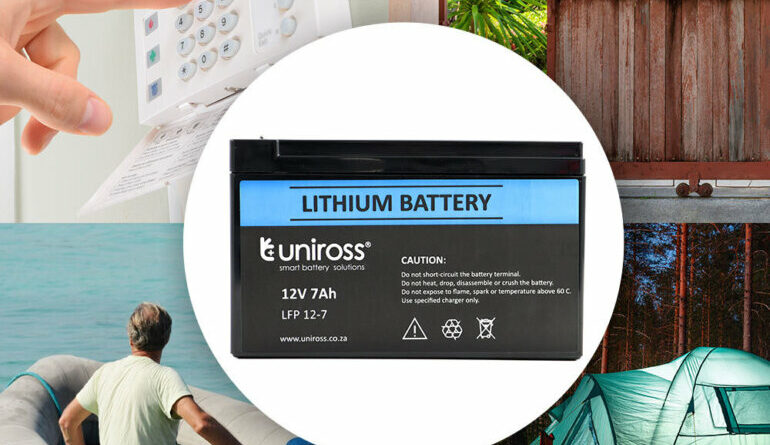Insurance risk of alarm systems comprimised during loadshedding
As South Africa continues to experience frequent bouts of load shedding, security systems can be severely compromised due to the use of old-technology lead-acid batteries used in most security systems. The questions that arise are the insurance implications of an alarm battery failure during loadshedding.
In the case of a homeowner activating their alarm, and while away loadshedding strikes and the backup battery fails, is the home or premises covered by insurance?
Michael Rogers, MD of rechargeable battery manufacturer Uniross, says this usually depends on the insurer and whether or not an ‘alarm warranty’ is specified in the insurance policy.
Generally, if the home insurance policy requires an alarm with an armed response service then the alarm must be set each time the householder leaves home. If the alarm isn’t set, even if by accident, the insurance company may not be obliged to provide cover for theft or burglary if the alarm is part of the policy requirement.
“The type of battery used in alarms can therefore create or alleviate this problem,” says Rogers. “Most alarm systems use lead acid batteries as their backup power source, but lead is an old technology and not the most suited to the frequent power outages that loadshedding brings.”
“Homeowners are replacing the lead batteries with the new lithium technology to avoid these risks. Using lithium will help to ensure that the alarm system is powered at all times, irrespective of the frequency of power outages,” Mr Rogers notes.
He explains that lead batteries were designed for infrequent use, and for short periods of time. “If a lead battery is repeatedly run flat, it will result in premature failure. Generally, lead batteries are not capable of being discharged below 50%, and if they are, it causes damage to the battery.”
“When this same battery is powering an alarm or other security device, one would never know how deeply it has been discharged. In this instance security must take preference. The level of discharge of the battery should not be a factor in determining whether the security system is functioning or not,” he adds.
“When this occurrence is repeated with each bout of loadshedding, in no time at all a lead battery won’t even last a few minutes, let alone a few hours needed to get through loadshedding.”
“It is therefore prudent to use a battery that is better suited to this application and the challenges that loadshedding brings,” says Rogers. “New technology lithium batteries are better than lead batteries in most respects, but in particular because they can run completely flat (100% depth of discharge) without causing damage to the battery, making lithium ideally suited to an alarm system.
“In addition, lithium batteries can be used up to 2000 times as opposed to 250-300 times that a lead battery will provide.”
About Uniross
With nearly five decades in designing and manufacturing batteries for various industries and applications, Uniross is a leading name in South Africa’s battery design and manufacturing space. The batteries made by Uniross are locally manufactured, helping the South African economy to go global while creating local employment opportunities.
Uniross also offers battery recycling and testing services besides battery designing and manufacturing. As a leader in its space, Uniross works with some of the top local and international brands, including Maxell, Samsung, Panasonic and more. Uniross aims to provide exceptional products, taking South African products to the world while boosting the local economy through employment generation.




